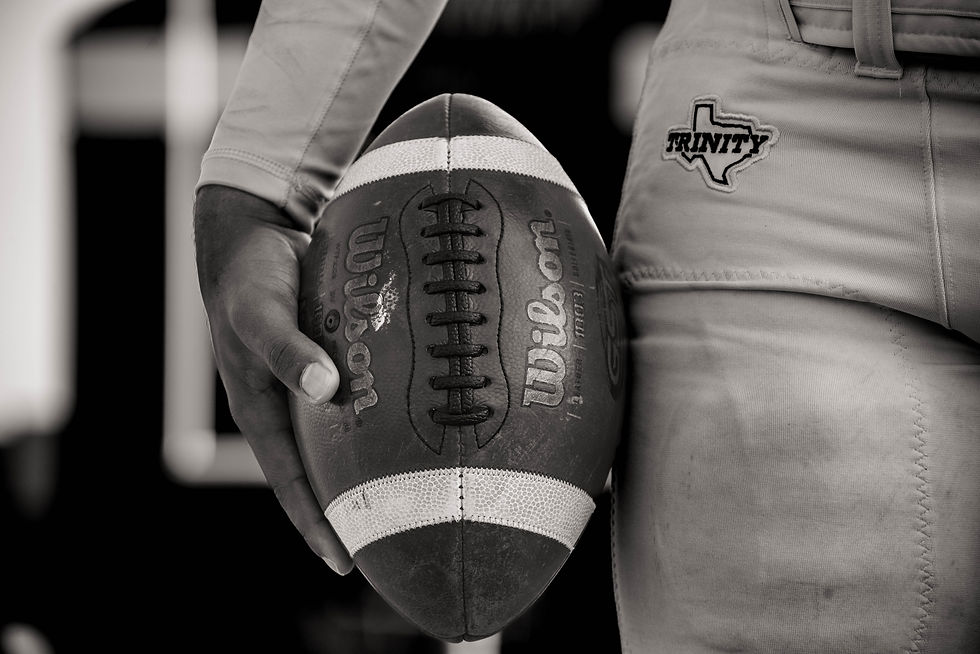Pierce Jackson: Here For Each Other
- thotrinityu
- Sep 16, 2022
- 2 min read

What does the athletic world say about mental health? Showing your struggles is a sign of weakness. If you say something, everyone will look down on you.
You might say that isn’t true; you might say, “if someone told me they were struggling, I would be accepting”. However, that doesn’t mean there isn’t a problem. When you put yourself in an athlete’s shoes, it suddenly becomes much harder to reach out to anyone–whether they’re supportive or not–when you aren’t supposed to show weakness.
“Who are we when the pads are removed? Who are we when we take off our jerseys and go back home?”

Strong. Fast. Talented. Hard-working. Resilient. These are the responses I received in a survey on the words people use to describe collegiate athletes. While these words are correct, this is only the surface of the athlete. This is what you think when someone is flying around on the field, forcing their will on the opposing team. But, who are we when the pads are removed? Who are we when we take off our jerseys and go back home?
“Pushing things down isn’t tough or resilient at all. It prolongs the suffering.”

For athletes, it is drilled into you from the day you start your sport that you have to remain tough and resilient to succeed. Now, after embracing this ideology throughout my 10+ years of playing football, it has leaked into my general thought process. When times get tough and when I feel my spirits breaking, I push it down. I follow the thought process I am used to and hold in all my pain and thoughts. This is not tough or resilient at all. It prolongs the suffering. It turns a few thoughts into a snowball, catapulting into athletic and academic performance decreases, as well as other problems.
“Erase the stigma.”

So, what can we do to help minimize the effects of mental health issues on athletes as much as possible? The first step is to erase the stigma. We need to have open conversations about mental health. As long as there is a negative connotation about speaking out, no one can be open.
Teams also need to embrace this cause. They work as a unit, composed of many people striving for the same goal. They are united in their pursuit to win games, tournaments, and championships. If teammates can break boundaries and win trophies together, then the support of an athlete’s team could help them get out of a slump before it becomes a snowball. If we do it right, an athlete’s team can be their saving grace against mental health struggles.
Jack Hogan–a fellow Trinity teammate of mine–once said that “we go faster alone, but further together”. This is true for both sport and mental health. At the end of the day, athletes need to know that they aren’t alone in their struggles. We’re all here for one another.





Comments